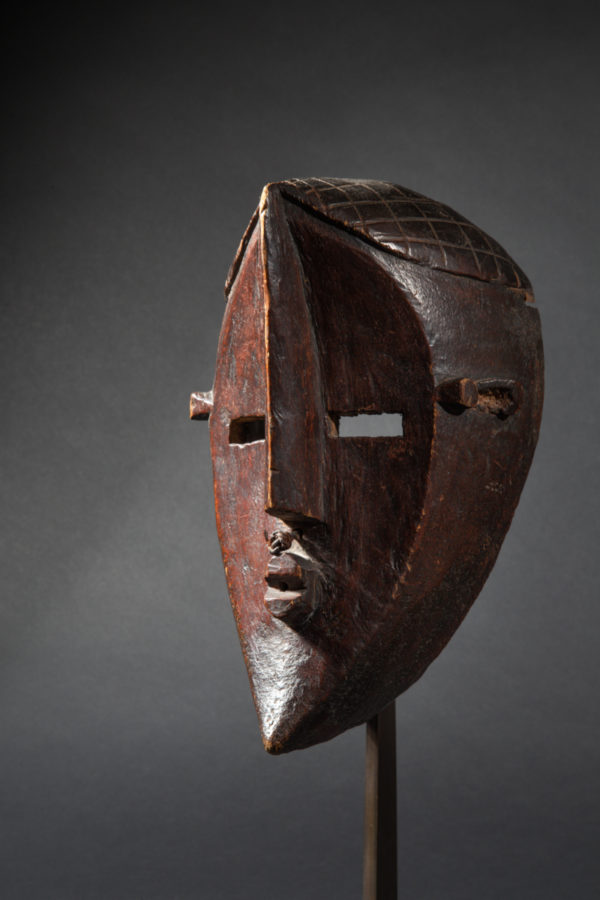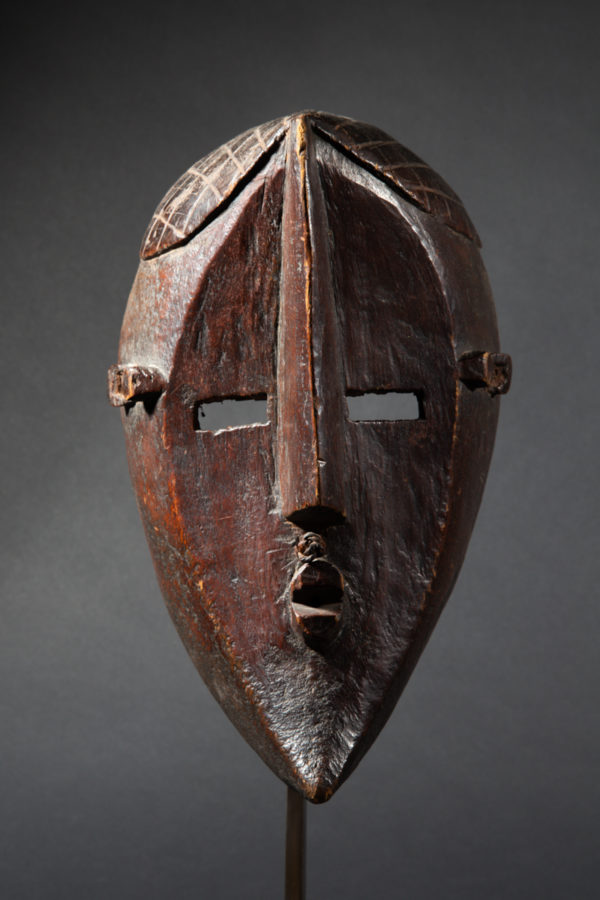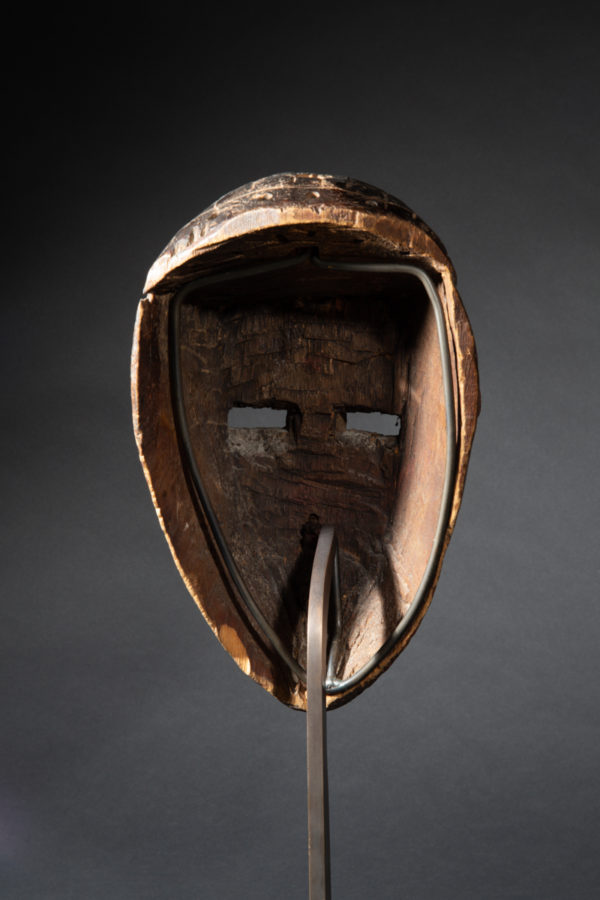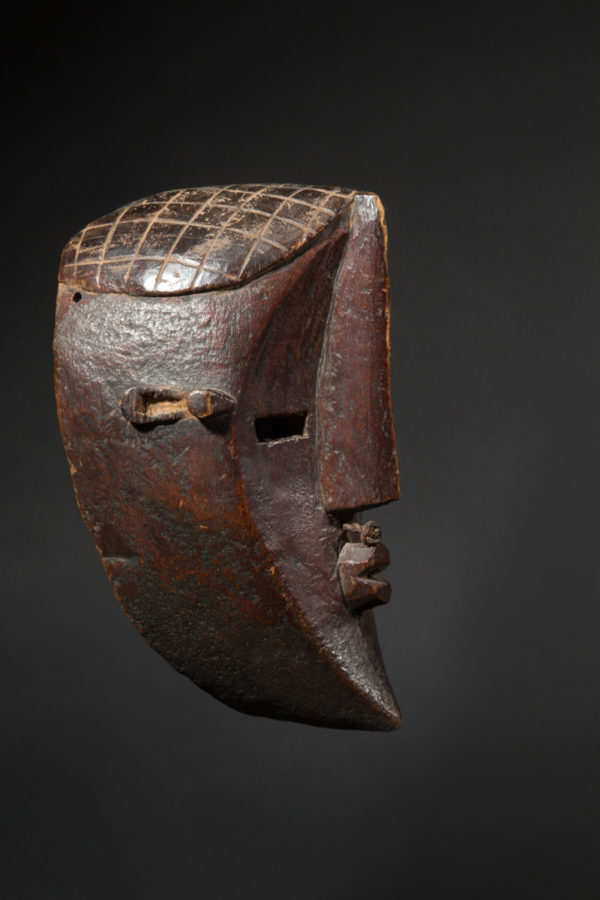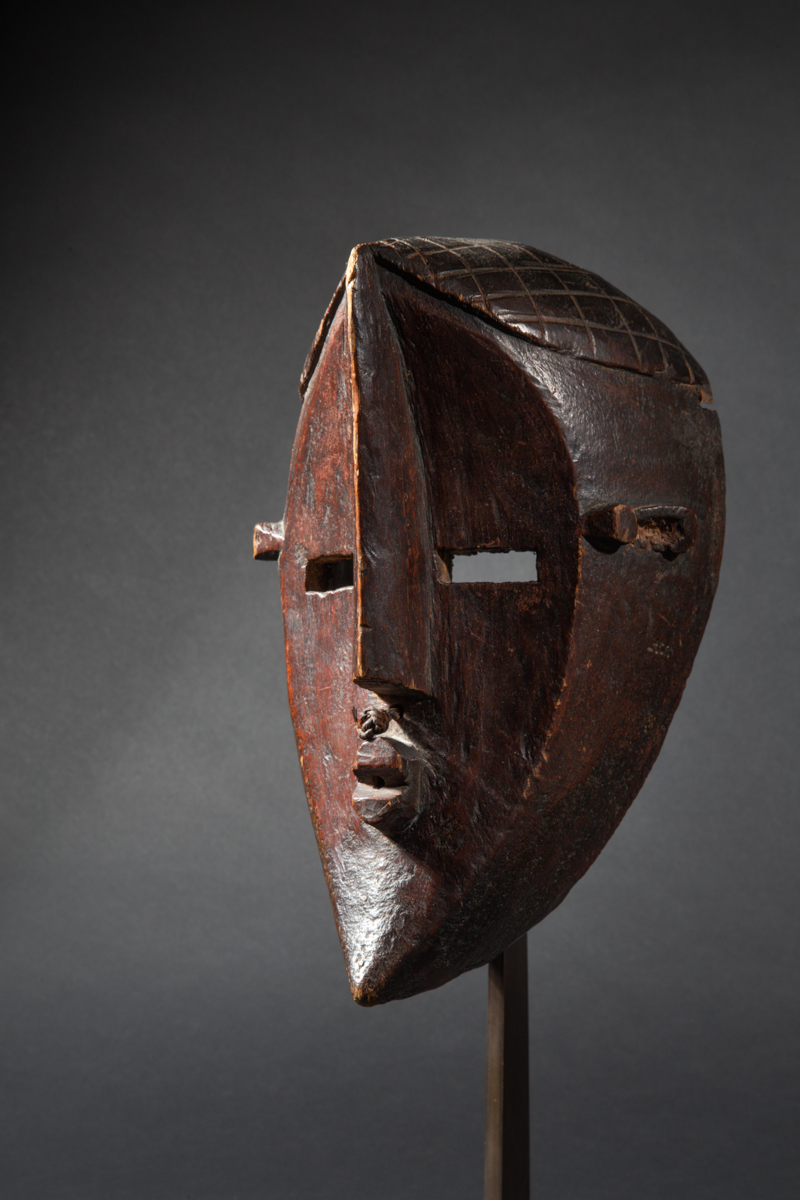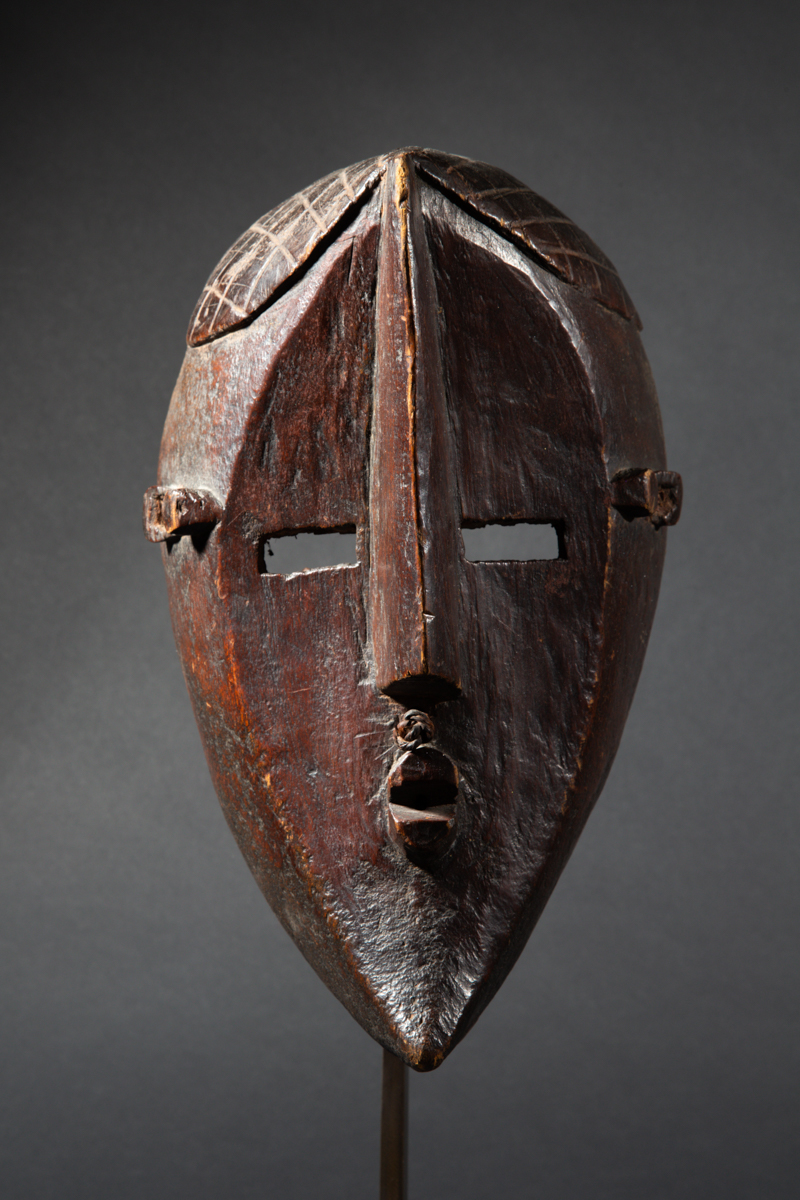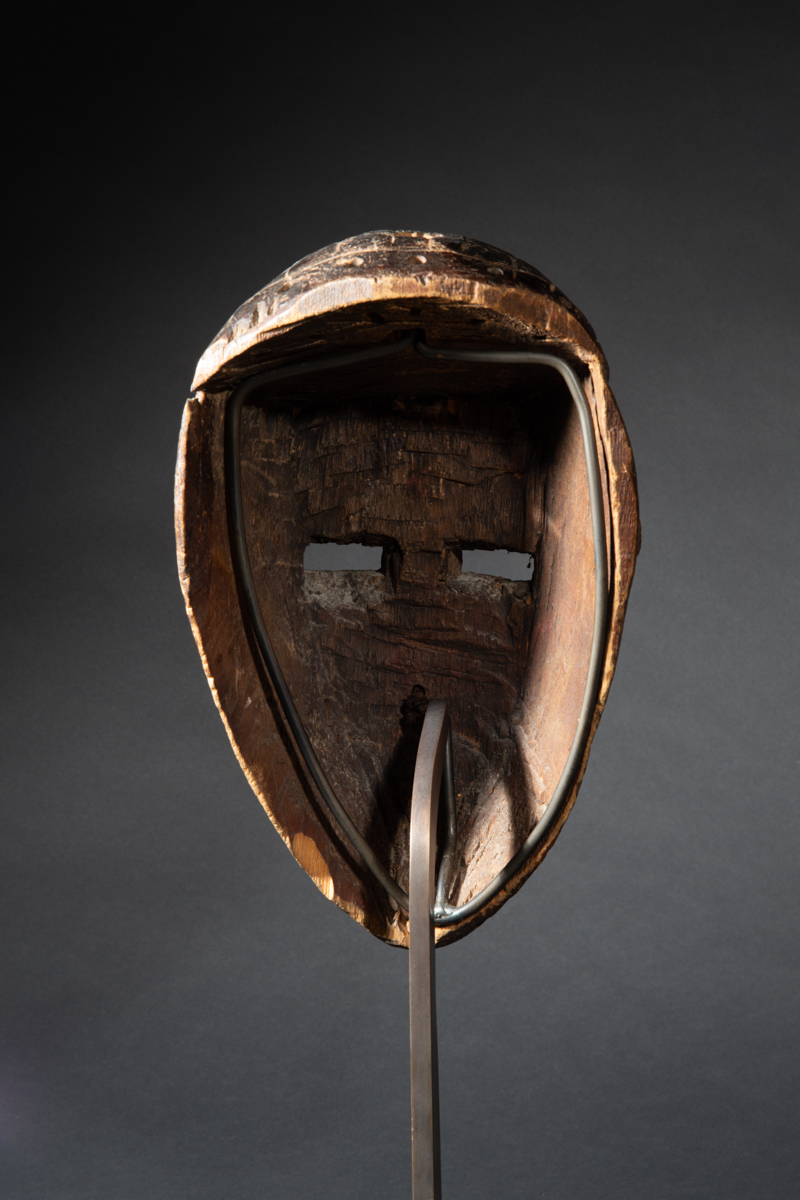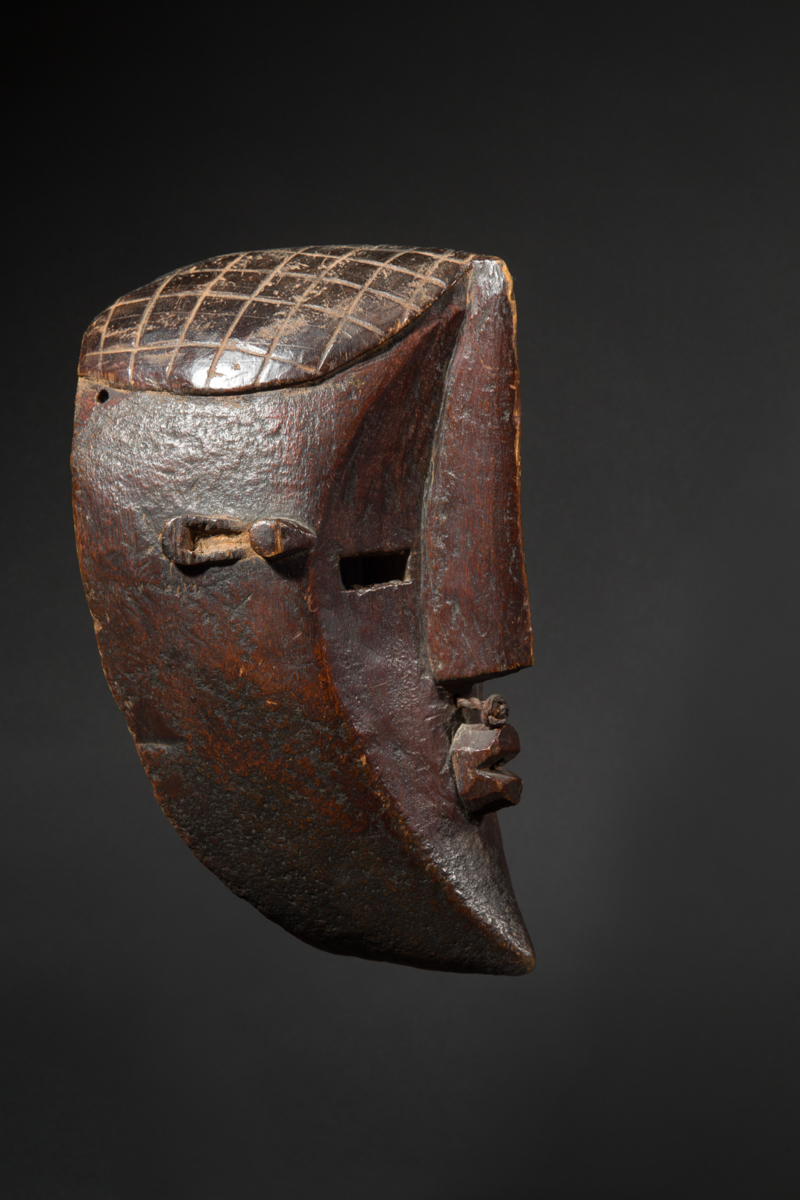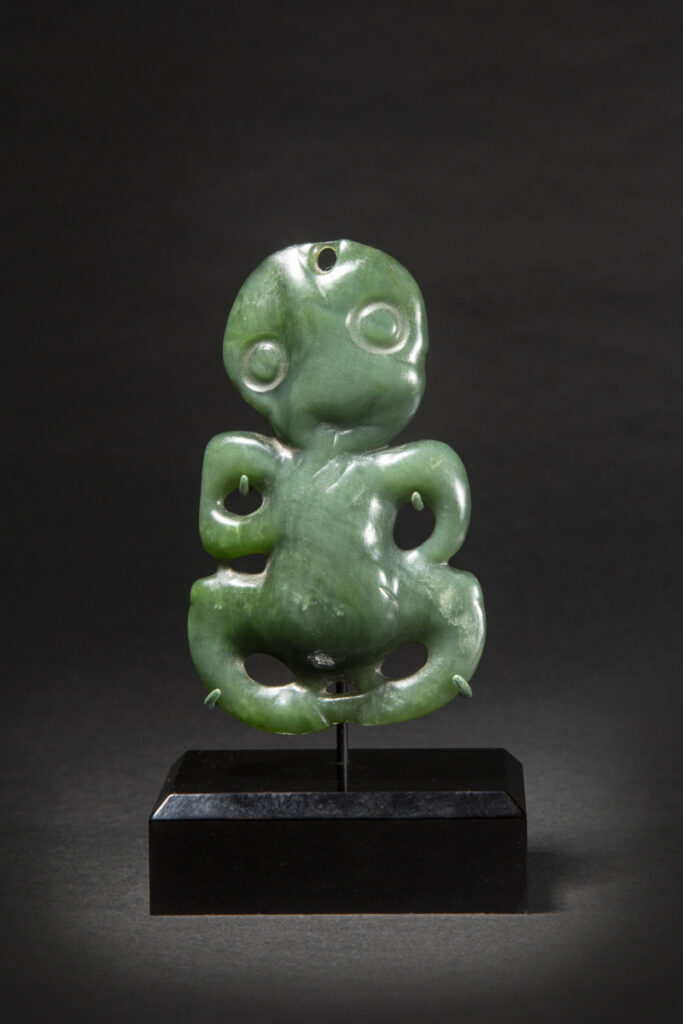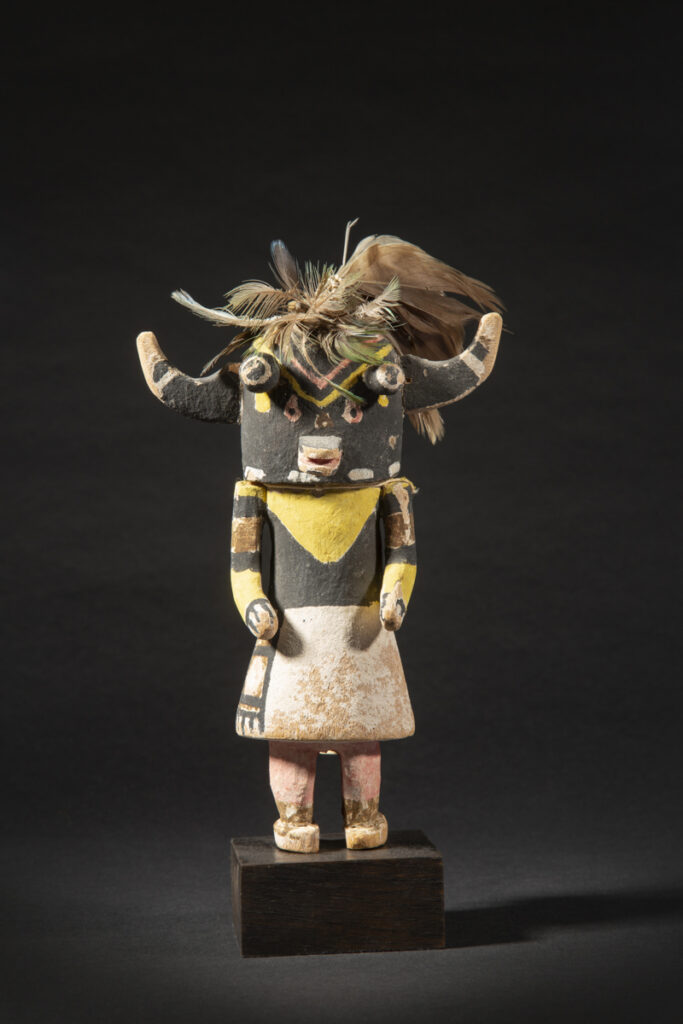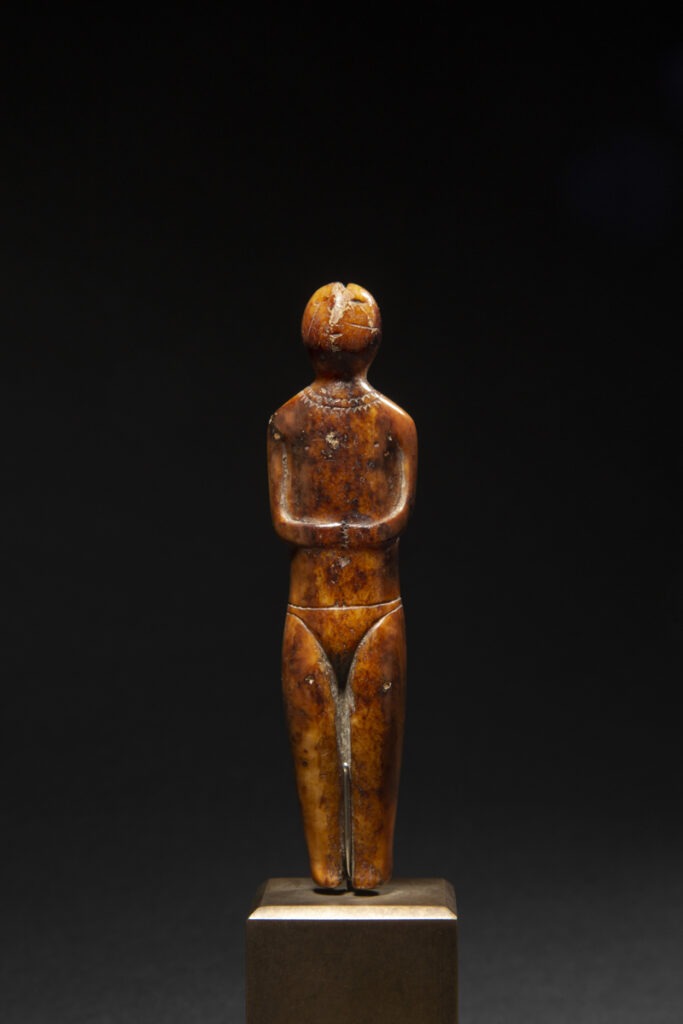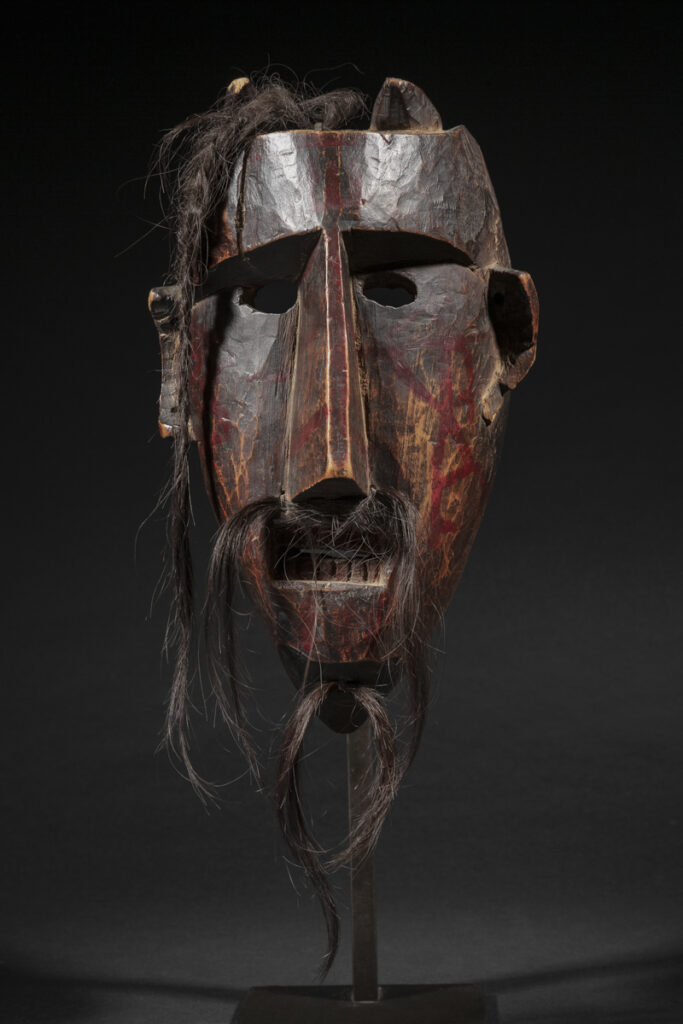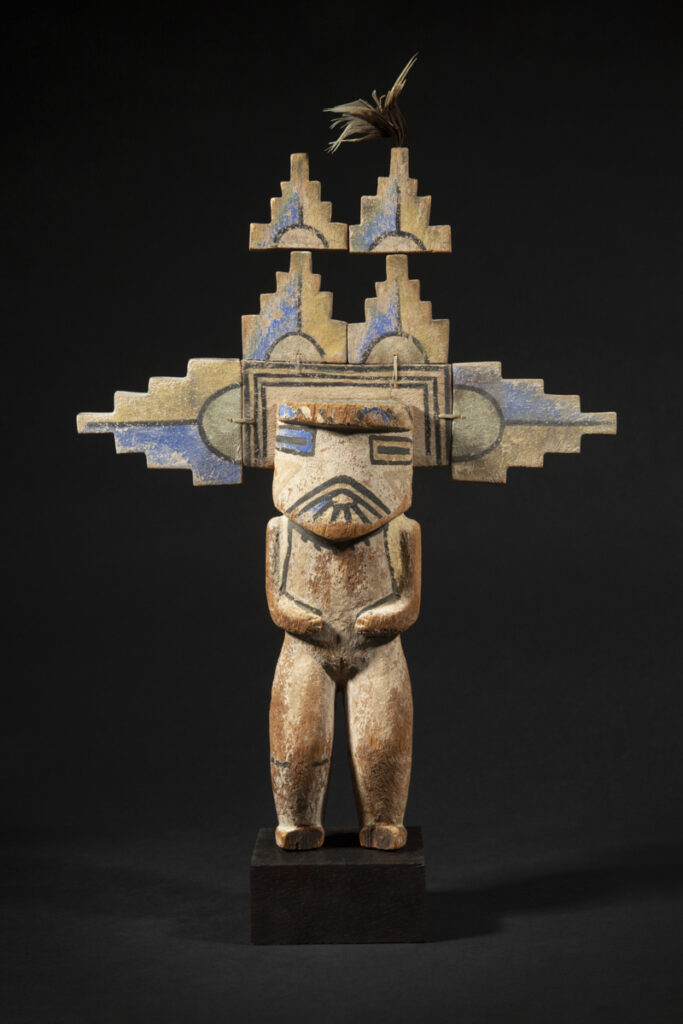Africa | Democratic Republic of the Congo
Lwalwa Mask
Democratic Republic of the Congo
Carved wood, pigments, fiber
Early 20th century
Height: 11 ½ in. (29 cm)
Ex Sotheby’s London, 30 November 1982, lot 112
Ex private collection, Paris
Ex collection Alain Lecomte, Paris
Yale University Art Gallery – The Yale-van Rijn Archive of African Art #0034088
Published: AfriCubism, 2018
Lwalwa mask 29 cm / www.galerieflak.com
Price on request
Lwalwa (or Lwalu) art is most famous for the powerful, highly cubistic masks of which this mask is a magnificent example with perfect proportion and elegant lines. While the nose-profile refers to the long beak of the calao bird, the characteristic protrusions on the temples represent skin decoration.
According to Ceyssens (in Tervuren, 1995, p. 328), above and beyond their pure geometric lines, Lwalu masks are a beautiful embodiment of the balance between the human and animal realms, their elaborate formal structure playing on a subtle balance between the tension of the concave planes, the starkness of the lines and the fullness of the volumes.
According to Timmermans (1967), who was working from Maesen's field notes, before Lwalu face masks were used for recreational performances, they were originally used for boys' rites of passage within the ngango institutions, and were also involved in hunting rituals to appease the spirits and seek their blessings.
Since they were brought to light in the 1930s, Lwalu masks have been praised for their novel form.
According to Ceyssens (in Tervuren, 1995, p. 328), above and beyond their pure geometric lines, Lwalu masks are a beautiful embodiment of the balance between the human and animal realms, their elaborate formal structure playing on a subtle balance between the tension of the concave planes, the starkness of the lines and the fullness of the volumes.
According to Timmermans (1967), who was working from Maesen's field notes, before Lwalu face masks were used for recreational performances, they were originally used for boys' rites of passage within the ngango institutions, and were also involved in hunting rituals to appease the spirits and seek their blessings.
Since they were brought to light in the 1930s, Lwalu masks have been praised for their novel form.
Publication
Explore the entire collection
